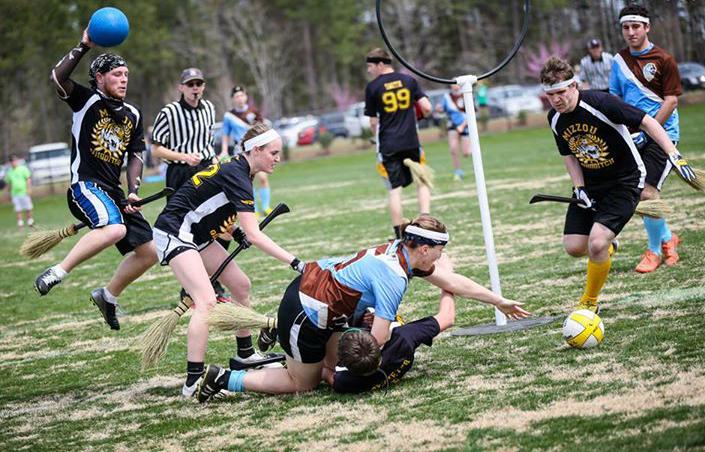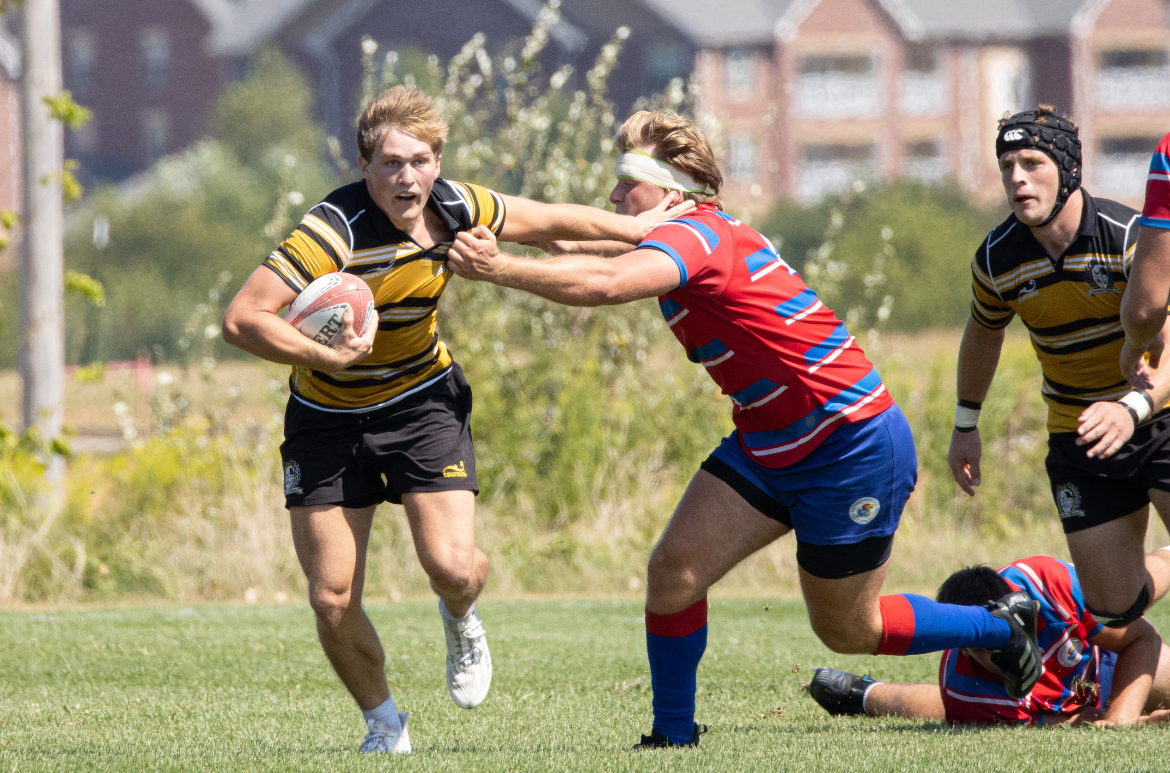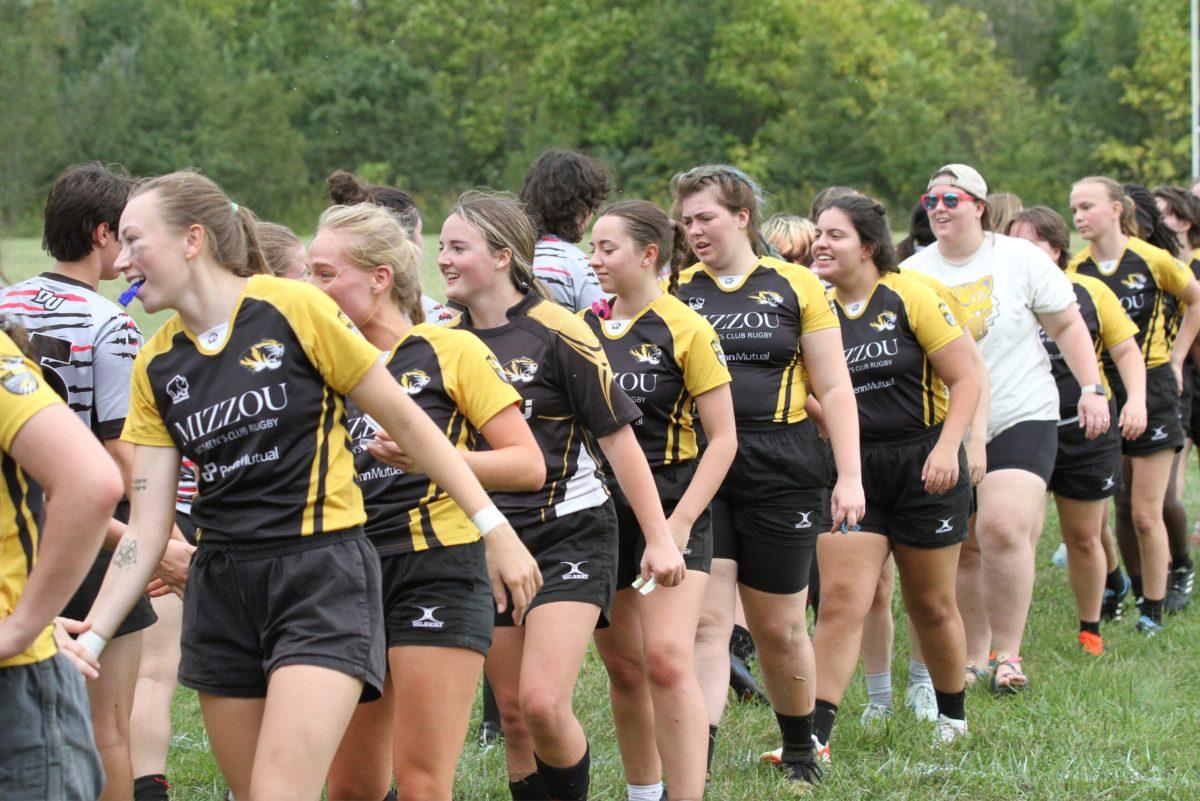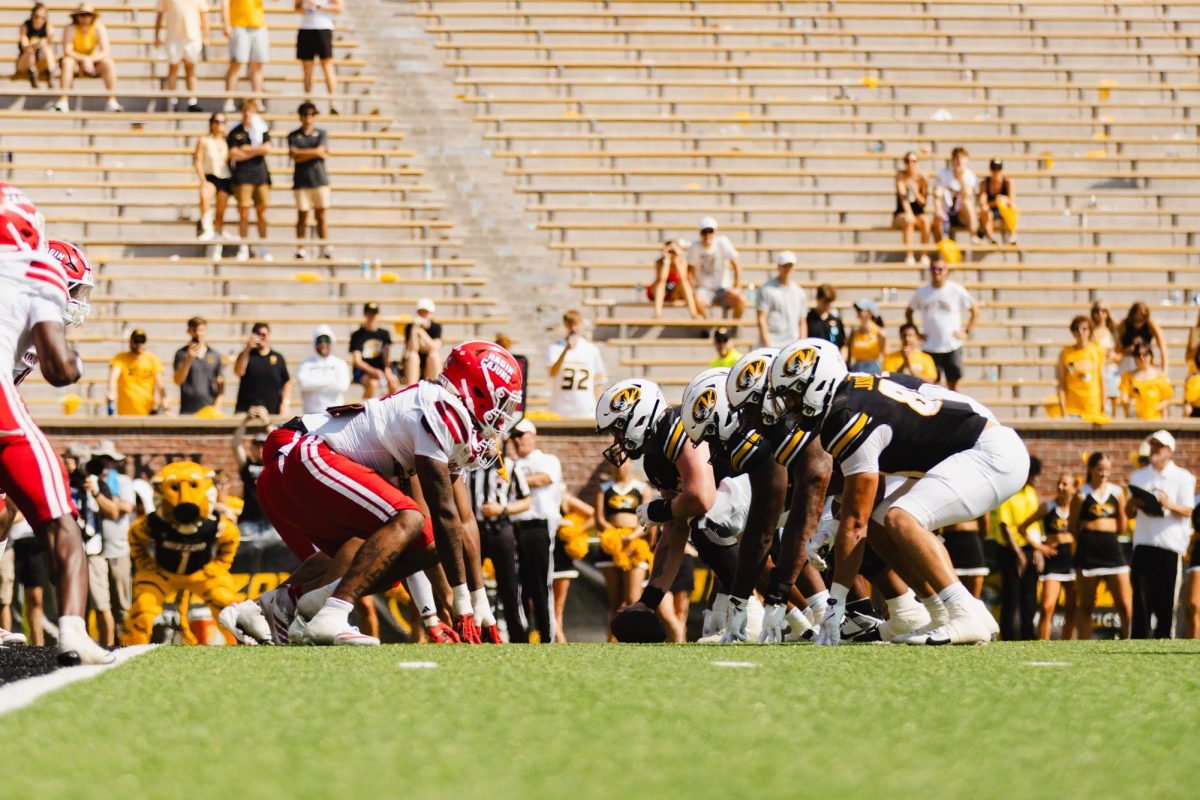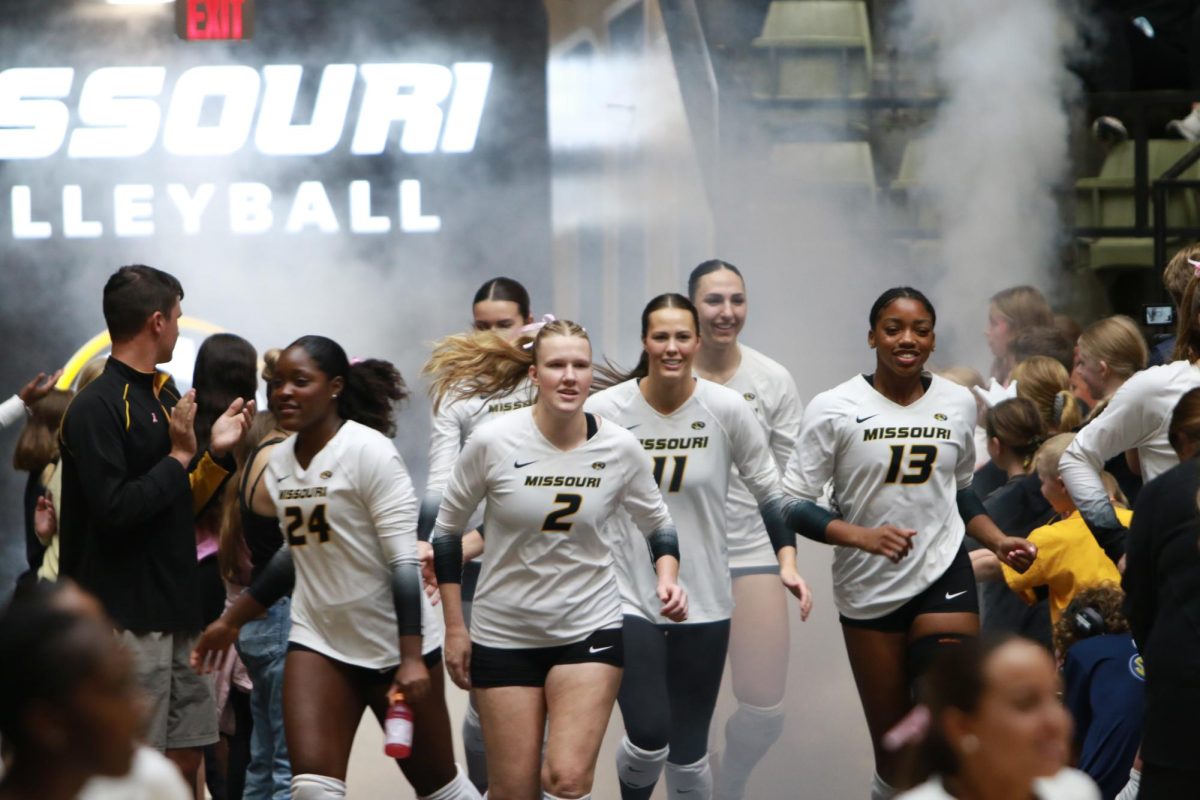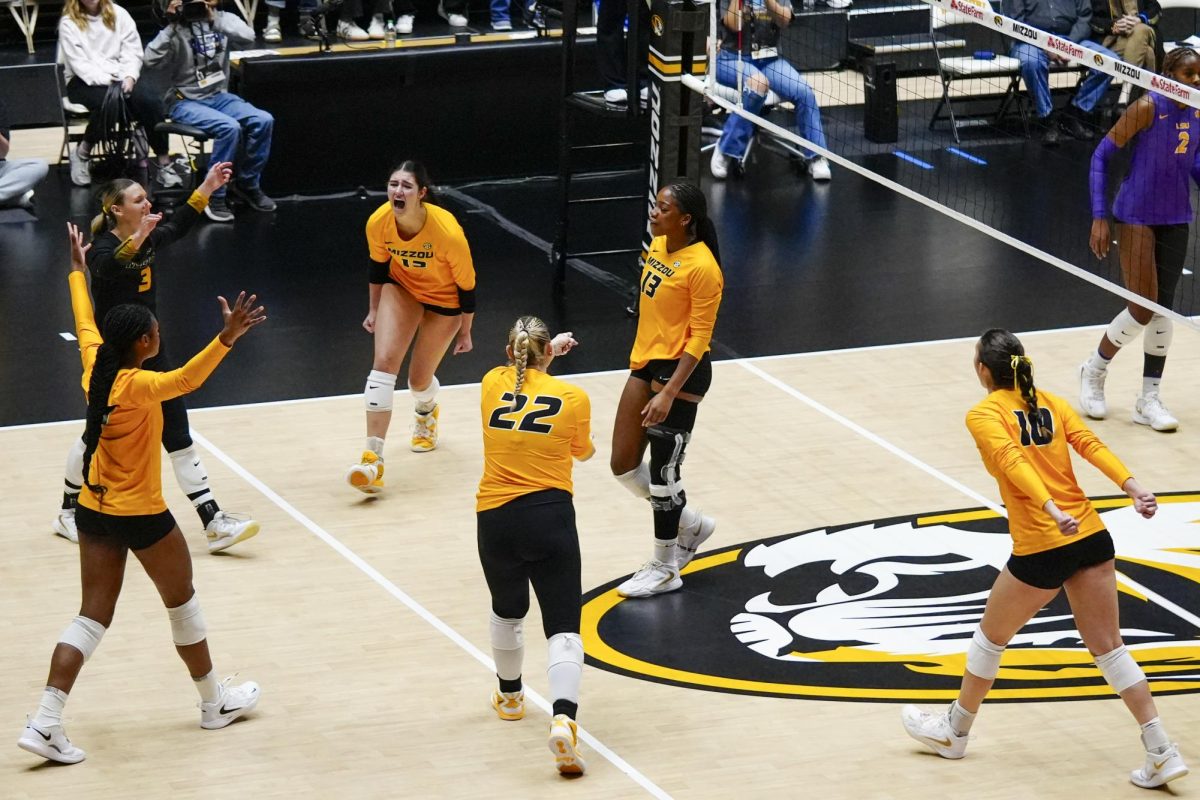Junior Taylor Korte has always been a natural athlete.
In high school, she excelled at basketball, softball and track and field. However, not once in high school did a coach from any of Korte’s several teams ask her to mount a broomstick.
When Korte attended Summer Welcome as a transfer student last summer, she noticed a table for the Quidditch team at the activities fair, but said she quickly assumed it to be a “nerd sport.” Korte grew up a fan of J.K. Rowling’s “Harry Potter” series, but didn’t see the fictionally-derived sport from the novels as anything more than group of fans playing around.
But Korte’s roommate convinced her to give the sport a try.
“My roommate was in a class with someone on the Quidditch team and he showed their highlight reel to the class,” Korte said. “She showed it to me and there’s a part where the old captain picked up a guy and threw him on the ground, and I was like ‘Okay, it’s not a nerd sport. I’m going to have to join now.’”
She’s glad she did. The “nerd sport” has taken her across the country.
Founded in 2010, MU’s Quidditch Club team performed well enough in its third season – Korte’s first – to make an appearance at the US Quidditch’s World Cup in Myrtle Beach, South Carolina in 2013.
“Our first year of competitive play two years ago left much to be desired,” said MU Quidditch captain Brett Smith. “This year, under some new leadership and game play ideas, as well as an influx of freshman talent and returning experience, we made a name for ourselves.”
The USQ’s World Cup functions much like the FIFA World Cup. In order to attend the event, a team must do well enough during the regular season and regional tournament to make it to pool play. After pool play, teams that advance participate in bracket play. Depending on how far a team advances in bracket play determines whether it earns a spot in the final championship game.
The game is played in a similar way to what is described in the books, just not airborne. The full-contact sport consists of three chasers, two beaters, a keeper and a seeker.
The chasers’ main objective is to score points with a volleyball called the “quaffle,” while the beaters attempt to knock players out of the game with a “bludger” – a dodgeball. The keeper protects his or her team’s goal, similar to a goalkeeper in soccer, and the seeker – the position that Harry Potter played in the novels – attempts to catch the golden snitch, a tennis ball attached to a person dressed in all gold. Doing so wins the game for his or her team.
“At World Cup, our team played decently, but lacked the dedication and work ethic to play to our full potential,” Smith said. “Every game played was within snitch range but we could not find it in ourselves to get the victories.”
However, the team hopes that with its new talent and recent World Cup appearance, the sport will gain popularity on campus.
First played in 2005 at Middlebury College in Vermont, the sport has experienced incredible growth in its brief nine-year existence. According to Midwest U.S. Quidditch representative Alex Scheer, the popularity is not only rising in the U.S. but also abroad.
There are about 500 teams affiliated with United States Quidditch, the official collegiate Quidditch governing body in the United States. According to Scheer, there’s another 200 or 300 teams abroad, including teams in Canada, Mexico, China and Australia.
Korte said the combination of the physicality of the game and the people she plays with has made it an unforgettable experience.
“Amongst all the sports I’ve played I would definitely rank Quidditch as my top one,” Korte said. “I never come home and complain about practice or the game. I just really love it.”


